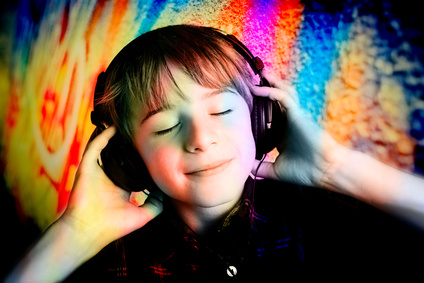Music is the perfect stress reliever and gives the brain a great workout.
Researchers at Queen’s University Belfast have found that music therapy reduces depression in children and adolescents with emotional and behavioral problems.
In the largest study of its kind the researchers in partnership with the Northern Ireland Music Therapy Trust, found that children who were treated with music therapy had significantly improved self-esteem and reduced depression compared with those who were treated without music therapy.
The study also found that those who received music therapy improved communicative and interactive skills, compared to those who received standard treatment.
There were 251 children and young people involved in the study, which took place between March 2011 and May 2014. The participants were divided into two groups, one group received music and the other received normal care.
They were all treated for behavioral, emotional, and developmental problems. The early findings suggest that these benefits may last long term.
“This study is hugely significant in terms of determining effective treatments for children and young people with behavioral problems and mental health needs,” said the leader of the study, Professor Sam Porter of the School of Nursing and Midwifery at Queen’s University.
Dr. Valerie Holmes, co-researcher added: “This is the largest study ever to be carried out looking at music therapy’s ability to help this very vulnerable group, and is further evidence of how Queen’s University is advancing knowledge and changing lives.”
Ciara Reilly, Chief Executive of the Northern Ireland Music Therapy Trust, said: “Music therapy has often been used with children and young people with particular mental health needs, but this is the first time its effectiveness has been shown by a definitive randomized controlled trial in a clinical setting. The findings are dramatic and underscore the need for music therapy to be made available as a mainstream treatment option. For a long time we have relied on anecdotal evidence and small-scale research findings about how well music therapy works. Now we have robust clinical evidence to show its beneficial effects.”
Note: None of the information in our website is intended to diagnose, treat, cure or prevent any illness or disease. The content on our website is for educational purposes only.
DON’T FORGET to sign up for our weekly newsletter to get our latest articles, updates, free recipes and giveaways.
20 songs to put you in a good mood.
9 essentials for happy children.
Could music stimulate kids’ brains.
REFERENCES:
1. “Music Therapy Reduces Depression in Children and Adolescents.” Alpha Galileo. Queen’s University Belfast, 22 Oct. 2014. Web. 27 Oct. 2014.
2. “This Is Your Brain. This Is Your Brain On Music.” NPR. NPR, 10 Sept. 2014. Web. 27 Oct. 2014.
3. “How Playing Music Affects The Developing Brain.” CommonHealth. CommonHealth, 17 July 2014. Web. 24 Oct. 2014.
4. “How Playing an Instrument Benefits Your Brain – Anita Collins.” TED-Ed. TED, n.d. Web. 25 Oct. 2014.

















